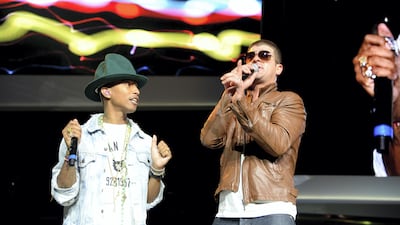Ignorance is no longer an excuse when it comes to breaching copyright. This was the solemn message given to a room of producers and DJs in a panel discussion at Amsterdam Dance Event.
With copyright law an increasingly fluid landscape, and the process of sampling in music on an upward trajectory, more cases focusing on an artist's usage of existing music will be heard in court, they predict.
An increasing number of legal hurdles present a clear and present danger, both creative and financial, to dance producers today, according to Nadav Poraz, founder of the music search engine WhoSampled. Underpinning the issue, he explains, is the view shared by the legal fraternity and some artists: that sampling is theft, as opposed to tribute. "To claim that a small heavily manipulated sample is stealing is ludicrous," he says.
“Sampling is largely, with some exceptions, a highly creative form. It creates new work and meanings out of an existing song without taking anything away from it.”
Poraz says that 2014's Blurred Lines copyright case, in which Robin Thicke, Pharrell Williams and rapper TI were successfully sued by the Marvin Gaye estate for recreating "the vibe" of Gaye's 1977 funk track Got to Give It Up, sent shock waves across the industry.
"And you can already see the result of that," Poraz says. "I remember I heard one song by Thicke after the case and in the song credits it had Barry Manilow on it, despite the song being completely different from the Manilow song. Everyone is nervous."
The picture is as confusing on the legal front, according to Anna Neville, a lawyer for British recording company Beggars Group. "There are different courts in different circuits," she says. "When you throw in that many of these records are used worldwide, then many more different legal systems come into play. The way we deal with it is to have a cautious approach."
Neville says record companies are generally approachable when it comes to sample clearances, and recommends that artists approach them in an official capacity. "We clear samples when we can. I think you can get permission from the record label, and if you don't have the money, they will take a royalty or share from the record," she says.
“It is important to note that with so much music being produced today using samples, this means that most people are agreeing to its usage. It only gets complicated when you are dealing with an artist, or an estate of the artist, who are both absolute sticklers when it comes to work being sampled and when there is a lot of money being involved. As the saying goes in the industry: where there is a hit there is writ.”
The point regarding a song's popularity presents a dilemma for dance music artists, says Steve Rodway, a Grammy nominated songwriter and lawyer. If a song fails to hit the charts, then it probably wouldn't reach the attention of the original writers of the sample, he points out. "But who creates music and has no faith that it will do well?" he asks. "If you believe in your work and the chances of its success, then the onus is on you to at least approach the songwriters of the song.
"Some people don't know who to call or approach regarding clearing the samples," he said. "So what's needed now are pathways to be made easier for artists. Artists themselves need to be aware of this. They would be mad not to – the stakes are too high."
_______________
Read more:
When singers face the music for copyright infringement
The Chemical Brothers join Party in the Park line-up
_______________


